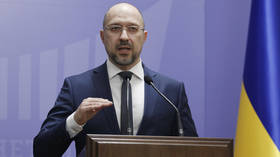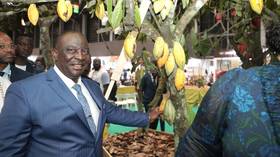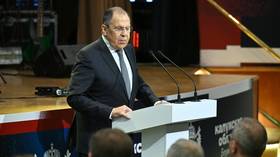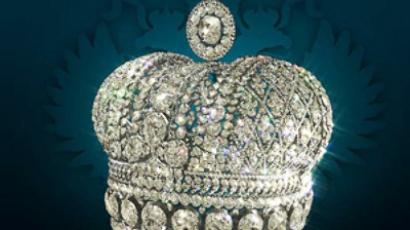Yasnaya Polyana – a mecca for lovers of Tolstoy
RT visited the estate of Yasnaya Polyana in the Tula region, the family home of the world-famous writer Leo Tolstoy, to gain an in-depth and personal understanding of what the author means to local residents.
Yasnaya Polyana is a place of pilgrimage for aspiring writers and for readers moved by the words penned by Russian novelist Leo Tolstoy. Visitors come to connect with the author and to see the home that shaped his life, the place where he wrote works like Anna Karenina and War and Peace, works that have captured periods in time, works that have also endured. Leo Tolstoy’s estate where he lived and was buried is now a museum.
Overseeing the grounds is Vladimir Tolstoy, the estate director and writer’s great-great grandson, who believes that he is preserving a national legacy.
"It is important to me personally. It is important to Russia and the whole of humanity, because Tolstoy's ideas are very relevant today. His ideas are about non-violence, a complex state government, and a person's relationship with religion,” shared estate director.
Tolstoy’s religious views are forever linked to the Doukhobors, a small group of Christians who disagreed with the rituals of the Orthodox Church. Certain sectors of the Doukhobor population were forced to Russia's Caucasus region for their views, while Tolstoy himself was excommunicated by Orthodox Church authorities.
The ancestors of the group of Doukhobors living now in Tula region were considered more radical because they not only disagreed with the church, but they also disagreed with the government in matters of war. As pacifists, the Doukhobors refused to join the military and for their stance they were beaten, jailed and exiled to Siberia.
Tolstoy shared their views on religion and on non-violence. He used his influence to save them from persecution and to help them relocate to Canada. There they lived within their own communities, practicing their faith and maintaining their Russian heritage.
More than 100 years after their relatives made it to Canada, the Podovinikoff family is returning to Russia, resettling in Yasnaya Polyana. The husband and wife have been chipping away little by little to build a home that will also serve the Doukhobor community and they are doing it with the moral support of a Tolstoy.
“You have family that you have through blood and then you have family that you have through spirit,” Russian-Canadian Doukhobor Elaine Podovinikoff said, “When we came to Yasnaya Polyana and we started wandering around the village we decided ‘Yes, we have to have grassroots, actual roots together for the future’.”
Elaine's enthusiasm doesn't surprise her father. He says all of Canada's Doukhobors revere the man they call Grandpa Tolstoy. In fact, Eli Popoff's father was in Siberia when Tolstoy managed to help free him. For that his family is forever indebted.
“Grandpa Tolstoy, the one who helped the Doukhobors. He was a pillar of heaven as far as we were concerned,” Dukhobor Eli Popoff said.















